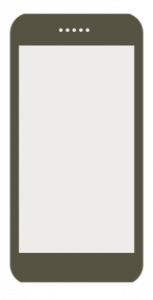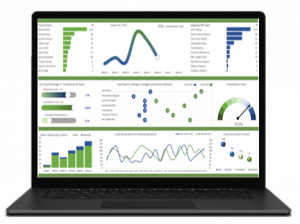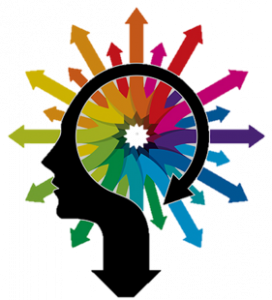APPS PORTFOLIO
|
 |
 |
|
|
 |
APPS PORTFOLIO
|
 |
 |
|
|
 |
| Cookie | Duration | Description |
|---|---|---|
| cookielawinfo-checkbox-analytics | 11 months | This cookie is set by GDPR Cookie Consent plugin. The cookie is used to store the user consent for the cookies in the category "Analytics". |
| cookielawinfo-checkbox-functional | 11 months | The cookie is set by GDPR cookie consent to record the user consent for the cookies in the category "Functional". |
| cookielawinfo-checkbox-necessary | 11 months | This cookie is set by GDPR Cookie Consent plugin. The cookies is used to store the user consent for the cookies in the category "Necessary". |
| cookielawinfo-checkbox-others | 11 months | This cookie is set by GDPR Cookie Consent plugin. The cookie is used to store the user consent for the cookies in the category "Other. |
| cookielawinfo-checkbox-performance | 11 months | This cookie is set by GDPR Cookie Consent plugin. The cookie is used to store the user consent for the cookies in the category "Performance". |
| viewed_cookie_policy | 11 months | The cookie is set by the GDPR Cookie Consent plugin and is used to store whether or not user has consented to the use of cookies. It does not store any personal data. |
Privacy Policy
This privacy policy will explain how NewPsy4U uses the personal data we collect from you when you use our website.
1. What data do we collect?
NewPsy4U only collects personal identification information (name, email address, working position). Personal data are provided directly by the user upon registration, and the user can edit his/her personal data at any time. Personal information is also collected in the event of email communication between users and site administrators.
2. How will we use your data?
NewPsy4U collects your personal data so that we can:
Manage your account.
Email you with notifications about the status of your jobs and of NewPsy4U.
3. What are your data protection rights?
NewPsy4U would like to make sure you are fully aware of all of your data protection rights. Every user is entitled to the following: The right to access – You have the right to request NewPsy4U for copies of your personal data. The right to rectification – You have the right to request that NewPsy4U correct any information you believe is inaccurate. You also have the right to request NewPsy4U to complete the information you believe is incomplete.
4. Cookies.
Cookies are text files placed on your computer to collect standard Internet log information and visitor behavior information. When you visit our websites, we may collect information from you automatically through cookies or similar technology. For further information, visit “allaboutcookies.org”.
5. Privacy policies of other websites.
NewPsy4U contains links to other websites. Our privacy policy applies only to our website, so if you click on a link to another website, you should read and accept their privacy policy.
Term of Use
NewPsy4U DISCLOSURE AGREEMENT
Welcome to our site. By using our site, you are agreeing to comply with and be bound by the following terms of use. Please review the following terms carefully. IF YOU DO NOT AGREE TO THESE TERMS, YOU SHOULD NOT USE THIS SITE.
1. Acceptance of Agreement.
You agree to the terms and conditions outlined in this Terms of Use Agreement (“Agreement”) with respect to our site (the “Site”). This Agreement constitutes the entire and only agreement between us and you, and supersedes all prior or contemporaneous agreements, representations, warranties and understandings with respect to the Site, the content, products or services provided by or through the Site, and the subject matter of this Agreement. We may amend this Agreement at any time without specific notice to you. The latest Agreement will be posted on the Site.
2. Use of Information.
Your right to use the Site is not transferable. Any password or right given to you to obtain information or documents is not transferable.
We reserve the right, and you authorize us, to the use and assignment of all information regarding Site uses by you and all information provided by you.
3. Copyright.
The content, organization, graphics, design, compilation, magnetic translation, digital conversion and other matters related to the Site are protected under applicable copyrights, trademarks and other proprietary (including but not limited to intellectual property) rights. The materials and services on this website are for your personal non-commercial and non-clinical use. The copying, redistribution, use or publication by you of any such matters or any part of the Site is strictly prohibited.
Products and names mentioned on the Site may be trademarks of their respective owners. We respect the intellectual property of others, and we ask you to do the same. If you believe that your work has been copied in a way that constitutes copyright infringement, please provide our Copyright Agent a self-certification stating that you are authorized to act on the copyright owner’s behalf, by directing an e-mail at admin@newpsy4u.eu
4. Medical/Clinical Use Disclaimer.
Materials on this Site have not been reviewed or approved by the European Medical Agency nor by the Food and Drug Administration. All materials on this Site are provided for informational and review purposes. NewPsy4U is a resource that may be used for non-clinical research only. In no evident shall data be used in the provision of patient care. NewPsy4U is not intended to and does not in any way substitute for professional medical advice.
The materials should not be relied upon for medical diagnosis or treatment, nor should you disregard the advice of your physical or other health care provider or delay seeking such advice due to anything you have read on or accessed through the Website. NewPsy4U assumes no responsibility for any injury and/or damage to person(s) or property as a matter of products and/or services liability, negligence or otherwise. Or from any use or operation of any methods, products, service, instruction or ideas contained in the material provided by the Site.
5. Data Access
NewPsy4U data are organized in two main typologies:
– Free access: users can freely access data since they are stored in public datasets openly available.
– Restricted access: these datasets are proprietary and under controlled access by the owners.
6. Data Anonymization
User agrees to anonymise data and takes under his/her responsibility any infringement of international data privacy rules (e.g.: GDPR, HIPPA, etc.). The data uploaded for processing in the NewPsy4U Site are deleted periodically every 60 days.
7. Algorithm Access
NewPsy4U algorithms are organized in two main typologies:
– Free access: users can freely access algorithms since they are stored in public repository openly available.
– Restricted access: these algorithms are proprietary and under controlled access by the owners.
8. Disclaimer and Limits.
THE INFORMATION FROM OR THROUGH THE SITE IS PROVIDED “AS-IS,” “AS AVAILABLE,” AND ALL WARRANTIES, EXPRESS OR IMPLIED, ARE DISCLAIMED (INCLUDING BUT NOT LIMITED TO THE DISCLAIMER OF ANY IMPLIED WARRANTIES OF MERCHANTABILITY AND FITNESS FOR A PARTICULAR PURPOSE). THE INFORMATION AND SERVICES MAY CONTAIN BUGS, ERRORS, PROBLEMS OR OTHER LIMITATIONS. WE HAVE NO LIABILITY WHATSOEVER FOR YOUR USE OF ANY INFORMATION OR SERVICE. IN PARTICULAR, BUT NOT AS A LIMITATION THEREOF, WE AND OUR AFFILIATED PARTIES ARE NOT LIABLE FOR ANY INDIRECT, SPECIAL, INCIDENTAL OR CONSEQUENTIAL DAMAGES (INCLUDING DAMAGES FOR LOSS OF BUSINESS, LOSS OF PROFITS, LITIGATION, OR THE LIKE), WHETHER BASED ON BREACH OF CONTRACT, BREACH OF WARRANTY, TORT (INCLUDING NEGLIGENCE), PRODUCT LIABILITY OR OTHERWISE, EVEN IF ADVISED OF THE POSSIBILITY OF SUCH DAMAGES. THE NEGATION OF DAMAGES SET FORTH ABOVE ARE FUNDAMENTAL ELEMENTS OF THE BASIS OF THE BARGAIN BETWEEN YOU AND US. THIS SITE AND THE PRODUCTS, SERVICES, AND INFORMATION PRESENTED WOULD NOT BE PROVIDED WITHOUT SUCH LIMITATIONS. NO ADVICE OR INFORMATION, WHETHER ORAL OR WRITTEN, OBTAINED BY YOU FROM US THROUGH THE SITE SHALL CREATE ANY WARRANTY, REPRESENTATION OR GUARANTEE NOT EXPRESSLY STATED IN THIS AGREEMENT. WE DO NOT PROVIDE LEGAL ADVICE NOR ENTER INTO ANY ATTORNEY-CLIENT RELATIONSHIP.
ALL RESPONSIBILITY OR LIABILITY FOR ANY DAMAGES CAUSED BY VIRUSES CONTAINED WITHIN THE ELECTRONIC FILE CONTAINING THE FORM OR DOCUMENT IS DISCLAIMED. WE WILL NOT BE LIABLE TO YOU FOR ANY INCIDENTAL, SPECIAL OR CONSEQUENTIAL DAMAGES OF ANY KIND THAT MAY RESULT FROM USE OF OR INABILITY TO USE OUR SITE.
9. Cookies
To allow the user to access the NewPsy4U website, the user is informed that one ore more cookies may be registered in the memory (RAM) of the used computer or terminal. Access to the website does not requires these cookies to be written on the hard disk or read-only memory (ROM) of the used computer or terminal. The user is informed she/he can oppose the installation of these cookies bay setting-up his/her Internet browser. Nevertheless, the access to the website can not be guaranteed in such circumstances, and the access to the website could be altered, if not impossible.
10. Third-Party Services.
The Site contains links to other web sites. We are not responsible for the content, accuracy or opinions express in such web sites, and such web sites are not investigated, monitored or checked for accuracy or completeness by us. Inclusion of any linked web site on our Site does not imply approval or endorsement of the linked web site by us. If you decide to leave our Site and access these third-party sites, you do so at your own risk.
The Site contains information and press releases about us. While this information was believed to be accurate as of the date prepared, we disclaim any duty or obligation to update this information or any press releases. Information about companies other than ours contained in the press release or otherwise, should not be relied upon as being provided or endorsed by us.
We may allow access to or advertise third-party product or service providers (“Merchants”) from which you may purchase certain goods or services. You understand that we do not operate or control the products or services offered by Merchants. Merchants are responsible for all aspects of order processing, fulfilment, billing and customer service. We are not a party to the transactions entered into between you and Merchants. You agree that use of such Merchants is AT YOUR SOLE RISK AND IS WITHOUT WARRANTIES OF ANY KIND BY US, EXPRESSED, IMPLIED OR OTHERWISE INCLUDING WARRANTIES OF TITLE, FITNESS FOR PURPOSE, MERCHANTABILITY OR NON-INFRINGEMENT. UNDER NO CIRCUMSTANCES ARE WE LIABLE FOR ANY DAMAGES ARISING FROM THE TRANSACTIONS BETWEEN YOU AND MERCHANTS OR FOR ANY INFORMATION APPEARING ON MERCHANT SITES OR ANY OTHER SITE LINKED TO OUR SITE.
11. Miscellaneous.
This Agreement shall be treated as though it were executed and performed in Brescia, and shall be governed by and construed in accordance with the laws of the State of Italy (without regard to conflict of law principles). Any cause of action by you with respect to the Site (and/or any information, products or services related thereto) must be instituted within one (1) year after the cause of action arose or be forever waived and barred. The language in this Agreement shall be interpreted as to its fair meaning and not strictly for or against either party. All legal proceedings arising out of or in connection with this Agreement shall be brought solely in Italy. You expressly submit to the exclusive jurisdiction of said courts and consents to extra-territorial service of process. Should any part of this Agreement be held invalid or unenforceable, that portion shall be construed consistent with applicable law and the remaining portions shall remain in full force and effect. To the extent that anything in or associated with the Site is in conflict or inconsistent with this Agreement, this Agreement shall take precedence. Our failure to enforce any provision of this Agreement shall not be deemed a waiver of such provision nor of the right to enforce such provision.
12. Indemnification.
You agree to indemnify, defend and hold us and our attorneys, staff, advertisers, product and service providers, and affiliates (collectively, “Affiliated Parties”) harmless from any liability, loss, claim and expense, including reasonable attorney’s fees, related to your violation of this Agreement or use of the Site.
